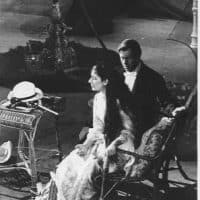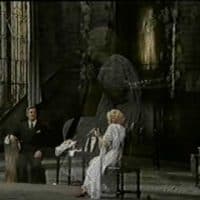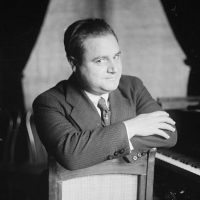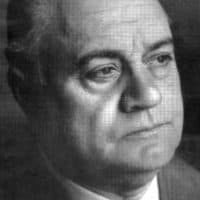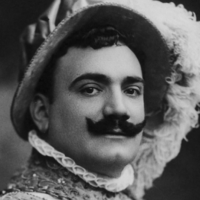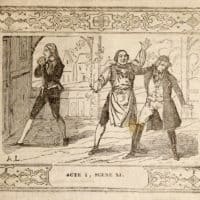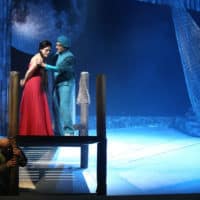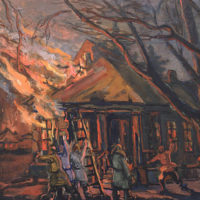Last week I asked what opera-goers should do about food (I’m still waiting for suggestions); this week it’s the characters’ relationship with food I want to explore. Plenty of singing about food and beverages happens in operas, especially the comedies. We’ll leave aside drinking songs for the moment—there are enough of them to merit an entire post about that!—and take a look at some of the many fun moments from operas when characters sing about food and non-alcoholic drink.
Chocolate was a fashionable beverage in the 1700s, and, as such, it appears in several operas from that century. It was a very expensive drink and therefore limited to the aristocracy, but servants in operas seem good at finding ways to have it too. In Mozart’s Così fan tutte, the maid Despina can’t resist the smell of the chocolate she is preparing for her mistresses and steals a taste just before they return. (8:17 in the video below)
The maid in Pergolesi’s intermezzo La serva padrona can’t even be bothered to make her master’s hot chocolate. He waits for it three hours, and then she haughtily tells him he’ll have to do without it! In this video version, we see her sipping something in the servant’s quarters, though, so maybe she made the chocolate but drank it all. If you’ve ever had real drinking chocolate (much thicker and richer than the beverage we call “hot chocolate” today), you’ll understand why it’s so irresistible to so many characters. (1:45 in the video below)
Food is especially plot-critical in Rossini’s L’italiana in Algeri. The clever Isabella escapes from her captor Mustafà by teaching him to eat spaghetti—he is so distracted by the difficulties of proper fork-twirling (admittedly a difficult maneuver) that she has time to run to a ship in the harbor. (2:24:43 in the video below)
Humperdinck’s Hansel and Gretel mentions food so much that it’s hard to decide where to begin. In the opening scene, Gretel cheers her brother up by telling him that their mother is planning to make them a rice pudding that evening. In the second scene, the two are sent to the forest to gather strawberries. While they are gone, their father returns with unexpected bounty: bacon, butter, flour, sausages, fourteen eggs, beans, onions, and a quarter pound of coffee. Of course, the children encounter trouble in the woods when they nibble on a house made of gingerbread. They are captured by the witch, who tries to feed Hansel almonds and raisins to fatten him up. (0:45 in the video below for the discovery and consumption of the gingerbread house)
At the center of Britten’s Albert Herring is a magnificent May Day feast. The children list the British foods they’re excited to eat: “jelly, pink blancmange, seedy cake (with icing on), treacle tart, sausagey rolls, trifle in a great big bowl, chicken and ham, cheesy straws, marzipan.”
Although the foods aren’t specified, dinner plays an important role in Don Giovanni. The eponymous Don invite the Commendatore’s statue to dinner. Before the statue’s arrival, he sups quite handsomely. As usual, the servant (Leporello) weasels his way into sharing the feast.
Plenty of other operas mention food, too. Verdi’s Macbeth calls for a sumptuous banquet, as does Adams’ Nixon in China. In Verdi’s Falstaff, the title character receives (and is at a loss for how to pay) a bill for 6 chickens, 3 turkeys, 2 pheasants, 1 anchovy, and plenty of alcohol. The starving Bohemians in Puccini’s La bohème are always desperate for a good meal, so we get a full description of both their garret dinner (cold roast, pastry, and Bordeaux) and their feast at the Café Momus (sausage, roast venison, turkey, lobster, chicken, and stew).
I’m sure I am missing many excellent examples. What are your favorite food-related moments in opera?
